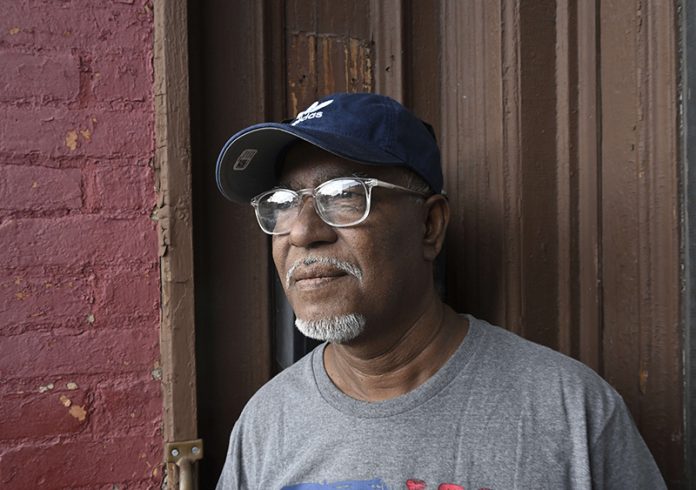
By Michael Hill
ALBANY, N.Y. (AP) — In a scathing ruling last month, a judge said the FBI had used a ”villain” of an informant to manipulate a group of Muslim men into going along with a fictitious plot to destroy military planes and synagogues in New York City’s suburbs. She ordered three released from prison, saying “the real lead conspirator was the United States.”
Now, a man convicted in another sting carried out by the same FBI operative says he hopes the ruling will prompt U.S. prosecutors to review the fairness of similar counterterrorism operations carried out in the wake of the 9/11 terror attacks.
“Hopefully this will be the first step for the Justice Department to review all those cases of conspiracy and entrapment,” said Yassin Aref, a former imam who spent 14 years in federal custody in a case involving a business loan made to an Albany pizza shop owner and a made-up story about a Stinger missile.
Aref and the shop owner were arrested in 2004 in one of several FBI stings carried out by a paid civilian operative named Shahed Hussain, whose work has been criticized for years by civil liberties groups.
Hussain entered the U.S. with his wife and two sons in the 1990s after he was accused of murder — falsely, he once testified— in his native Pakistan. He settled in the Albany area and was working as a translator when he got caught helping someone get their driver’s license illegally. In exchange for leniency, he started working for the FBI.
American law enforcement at the time was on a massive hunt for terrorist “sleeper cells” planning attacks on U.S. soil. Hussain worked with the FBI to approach people suspected of being sympathetic to Islamic militant groups and see if they could be talked into an illegal act.
One target was a group of four men from Newburgh, New York, who were arrested in 2009, convicted of plotting deadly antisemitic attacks and sentenced to 25 years in prison.
Courts have upheld their convictions, finding they knowingly became eager participants in a plot to plant explosives at a Bronx synagogue. But when three of the four applied for compassionate release, U.S. District Judge Colleen McMahon granted the request, saying the FBI had sent a master manipulator “to troll among the poorest and weakest of men for ‘terrorists’ who might prove susceptible to an offer of much-needed cash in exchange for committing a faux crime.”
In a ruling July 28, McMahon called them “hapless, easily manipulated and penurious petty criminals” who had no connection to any terrorist group and had “never remotely contemplated” violent extremism before they met Hussain.
The ruling resonated with defendants and attorneys in a case Hussain helped build in 2004 against two men involved with an Albany mosque, Aref and former pizza shop owner Mohammed Hossain.
Posing as a successful businessman, Hussain befriended Hossain, eventually offering to lend him $50,000 for his struggling business. But he also told the pizza parlor owner the money would come from the sale of a shoulder-fired missile, imported from China, to a group that wanted to kill a Pakistani diplomat in New York City.
Hossain later said he thought the talk about an attack was a joke and that the missile he was shown was a plumbing supply. For religious reasons, he asked his imam, Aref, to witness the business transaction, much like a notary.
Aref and Hossain, now free after serving long prison terms for money laundering concealing material support for an attack with a weapon of mass destruction and giving material support to a terrorist organization, say they were innocent.



















